
The Free Press

Ta-Nehisi Coates is one of those journalists treated by the left-of-center establishment more like a prophet than a writer. There are few accolades he hasn’t been granted, few prizes he’s yet to win. He’s received a “Genius Grant” from the MacArthur Foundation and a National Magazine Award. Oprah is his producer. And when Coates publishes a book, it’s an event.
His second book, Between the World and Me, won the 2015 National Book Award and spent over one-hundred weeks on the New York Times best-seller list. His 2014 Atlantic essay, “The Case for Reparations,” became so influential that it almost single-handedly made reparations for slavery an issue in the 2020 election. (In 2019, Coates and I both testified before Congress regarding the same issue.)
Since then, Coates has focused mainly on fiction and comic books, most notably Black Panther—an inspiring fantasy about an ancient African kingdom guarded by brilliant high-tech warriors rooted in tradition and ringed by envious enemies trying to destroy it. He conspicuously sat out the frenzied period of identity politics that followed George Floyd’s death.
That silence has now broken—though this is hardly something to celebrate. His new essay collection, The Message, is a masterpiece of warped arguments and moral confusion. But it is important to take it seriously, not because Coates’s arguments are serious, but because so many treat them as if they are.
Coates’s overarching themes are familiar: the plundering of black wealth by the Western world, the hypocrisy at the heart of America’s founding ideals, and the permanence of white supremacy. If The Message departs from his earlier work in any way, it’s that his desire to smear America has been eclipsed by his desire to smear Israel—an exercise that takes up fully half the book. (More about that, which Coates has declared “his obsession,” in a bit.)
Things go awry from the start. I hoped it was a heavy-handed attempt at irony when, having just used a George Orwell epigraph to kick things off, Coates subsequently addresses his first essay to “Comrades,” a word that Orwell ridiculed by making it the verbal tic of every totalitarian thug in his novels. But Coates is not being ironic—at least, not intentionally.
In his first essay, “Journalism Is Not a Luxury,” Coates recalls the sentiment that drew him to the written word: the feeling of being haunted. He returns to the word haunted over and over. As a young man he was haunted “by language,” he became obsessed with “what haunted [him] and why,” and ultimately wanted to “go from the haunted to the ghost, from reader to writer.”
I acknowledge the value of being “haunted.” In fact, I quite like the feeling. But my view is that if you want to feel haunted, go listen to Debussy, Radiohead, or Kid Cudi. That way, you will get all of the “haunted” feeling without any of the pretense that you’re learning something of value about the world.
Not everyone would agree that a good journalist needs to be a ghost, or that haunting, rather than informing, is journalism’s primary objective. A contrary view would hold that while a good nonfiction writer can certainly enchant the reader, communicating what is true and useful is a primary part of the job. Put simply, you must give your reader a clear and honest sense of the big picture.
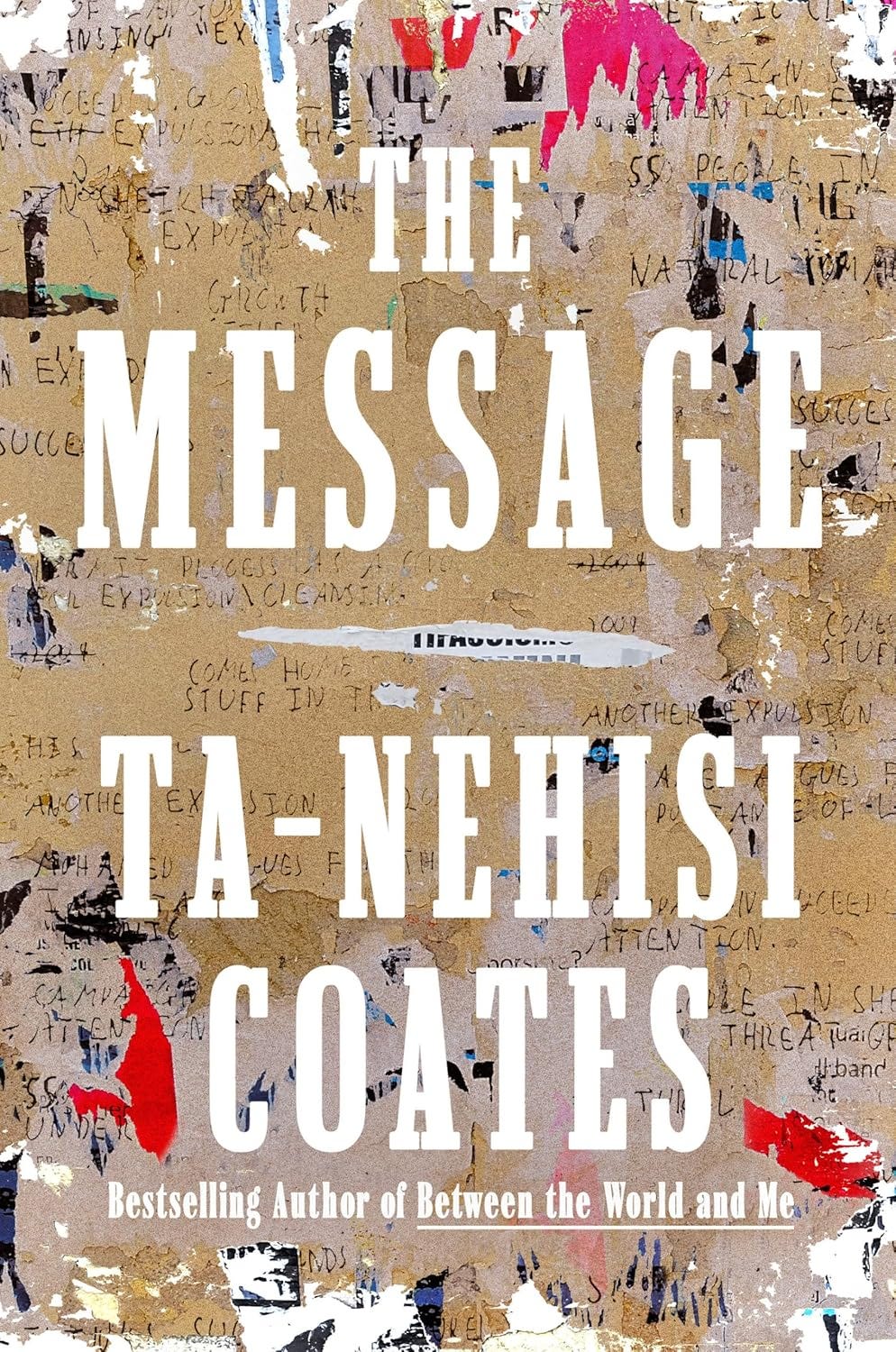
Here’s the crucial test of that metric: If you read nothing about a subject other than this author’s work, how informed would you be? To what degree would you understand the big picture?
On that metric, Coates fails spectacularly. Because Coates is not a journalist so much as a composer—one who uses words not to convey the truth, much less to point a constructive path forward, but to create a mood, the same way that a film scorer uses notes. And the specter haunting this book, and indeed all of his work, is the crudest version of identity politics in which everything—wealth disparity, American history, our education system, and the long-standing conflict between Israel and its Arab neighbors—are reduced to a childlike story in which the “victims” can do no wrong (and have no agency) and the “villains” can do no right (and are all-powerful).
Take, for instance, his second essay, “On Pharaohs.” Beginning as an account of his trip to Senegal, the essay becomes a meditation on the relationship between Africans and African Americans—as well as the relationship of both groups to their ongoing “oppressor”: the West.
The essay relies, for emotional weight, on Coates’s assumption that Western nations are rich, and African nations are poor, because of colonialism. This framework makes the West morally responsible for the poverty of countries like Senegal.
But economists have long exposed the problems with this theory. For starters, five-hundred years ago, the whole world was poor. Wealth was created only when certain nations began to adopt a set of key institutions: property rights, honest government, markets, rule of law, and political stability. These institutions rewarded productivity and, in particular, innovation. Every nation that has adopted these institutions has grown exponentially as a result. Every nation that hasn’t has remained in the default state of poverty.
One of the virtues of this theory is that, unlike Coates’s theory, it actually explains the world around us.
Why did Japan and South Korea have similar “growth miracles” in the twentieth century even though Japan was the historic colonizer and Korea its colony? Because they both adopted the key institutions. Why is Ethiopia poor even though it was never a colony? Because, like its African neighbors, it has not yet adopted them.
Insofar as African nations would like to have “growth miracles” of their own, they will need to import the political institutions that reliably create wealth. Most of those institutions are “Western” in origin. Thus, it does no one any good to nurse in Africans a hatred of the West and its institutions—except perhaps Western liberals, many of whom derive a perverse pleasure from castigating themselves, their countries, and their ancestors.
What’s more, colonialism and slavery were hardly Western inventions. As I read this chapter I couldn’t help but remember a detail from Between the World and Me, in which Coates tells his son that he’s named for Samori Touré, who stood up to the French in West Africa. He omits the earlier chapter in Touré’s career when he captured, enslaved, and sold thousands of Africans to Arab, African, and European traders as part of the spoils of his decades-long expansionist empire. This behavior, of course, was considered normal at the time. Which is exactly the point. But reading Coates, you would have no idea that anyone other than Europeans had ever committed such ugly acts.
Mythmaking, rather than history, dominates the book’s third essay, “Bearing the Flaming Cross,” where we learn that Coates had an intimate view of The 1619 Project as it was being created by Nikole Hannah-Jones. The 1619 Project was a series of essays and other works released by The New York Times that sought to retell the American story with slavery and white supremacy as the main protagonists—and to replace 1776 as America’s origin with the year 1619, when the first Africans were brought to Virginia as indentured servants.
As Coates tells it, the backlash to The 1619 Project practically fell out of the sky—or more precisely, resulted from a characteristically American unwillingness to face our past.
“Nikole is my homegirl,” Coates writes. And he “had the great fortune of watching her build ‘The 1619 Project,’ of being on the receiving end of texts with highlighted pages from history books,” and more. “Seeing the seriousness of effort, her passion for it, the platform she commanded, and the response it garnered,” Coates realized that “a backlash was certain to come.”
But the backlash had nothing to do with her passion. It was ignited most of all by Hannah-Jones’ absurd claim that “one of the primary reasons the colonists decided to declare their independence from Britain was because they wanted to protect the institution of slavery.”
This was fact-free revisionism of the lowest order, and it received an onslaught of deserved criticism from the general public and from historians—including Leslie Harris, who had been hired by The 1619 Project for quality control purposes and was left in “stunned silence” when they ignored her fact-checks. None of this appears in Coates’s book.
The trend of deliberate omissions continues when he conveys horror at the fact that “the 2020 protests” were “dubbed by some on the right as the ‘1619 Riots,’ thus explicitly, if in bad faith, connecting the writing and the street.”
The only bad faith here is that which Coates is displaying. I can think of many reasons why a sensible person might see the 2020 riots and The 1619 Project as thematically connected. Here’s one: When the New York Post ran an op-ed entitled “Call Them the 1619 Riots,” his homegirl Hannah-Jones responded by tweeting: “It would be an honor. Thank you.” This, as restaurants, police stations, and shops were being burned and looted all over the country.
Which brings us to Coates’s treatment of the Israeli-Palestinian conflict.
His final essay is called “The Gigantic Dream,” a reference to one of Theodor Herzl’s diary entries, in which the founder of modern political Zionism explains how he came to the conclusion that the Jews needed a state. Coates begins by describing his visit to Yad Vashem, the magnificent and horrifying Holocaust museum in Jerusalem.
It quickly becomes clear, however, that acknowledging the Holocaust is but a throat-clearing exercise before the main event: over one-hundred pages of the most shamelessly one-sided summary of the Israeli-Palestinian conflict I have ever read.
To tell that story—and it is very much a story, not a history—Coates takes us back.
Not to the establishment of the Jewish state, the collapse of the Ottoman Empire, or the First Zionist Congress but to his childhood in Baltimore. He recalls that he had “a vague notion of Israel as a country that was doing something deeply unfair to the Palestinian people, though I was not clear on exactly what.” He remembers “watching World News Tonight with [his] father, and deriving from him a dull sense that the Israelis were ‘white’ and the Palestinians were ‘Black,’ which is to say that the former were the oppressors and the latter the oppressed.” He recalls his father giving him a book called Born Palestinian, Born Black and appreciating that title.
In other words, Coates inherited an anti-Israel bias—based on crude, inaccurate analogies to American racial politics—on father’s knee. (His father ran an unsuccessful publishing house called Black Classic Press, which “took food off our table,” as Coates writes in The Beautiful Struggle, but was “another tool Dad enlisted to make us into the living manifestations of all that he believed and get us through.” Coates’s father recently republished The Jewish Onslaught, an antisemitic screed about Jews and the transatlantic slave trade.)
The younger Coates carried that homegrown bias through to adulthood, including well into his journalism career. You might expect a writer who routinely attacks white people who never question their childhood biases on race to wrestle, if only for a moment, with the possibility that his own inherited understanding might be clouding his judgment. But that moment never comes.
Many moments never come.

For example, I was waiting for Coates to mention a single instance of Palestinian terror, but the moment never came. He does, however, find the space to mention so many of the Israeli policies that were implemented specifically to prevent the terror attacks that murdered so many innocents during the Intifadas—checkpoints in the West Bank, for instance.
Though Coates didn’t look into Israel-Palestine until his 40s, according to his recent New York profile that may be his “greatest asset”—a pair of fresh eyes, as it were. But far from an asset, Coates’s hasty research is a liability, resulting in errors that always come at the expense of Israel. For instance, as an example of Israel’s Jim Crow–like “two-tier society,” he asserts that “Jewish Israelis who marry Jews from abroad needn’t worry about their spouses’ citizenship,” whereas the state “tracks Palestinian noncitizens through a population registry” and “bars Palestinian citizens from passing on their status to anyone on that registry—abroad or in the West Bank.”
The implication conveyed by this sentence—that Israeli law treats Arab Israelis differently than Jewish Israelis—is simply not true. The law in question is neutral as regards the race of the citizen attempting to naturalize his or her foreign spouse. The restriction is instead based on the nationality of the spouse.
Passed during the Second Intifada, the Citizenship and Entry into Israel Law erected barriers to one’s spouse obtaining Israeli citizenship if that spouse was from the West Bank or Gaza. This becomes understandable once you consider that the law was passed in 2003, after a Hamas member who had received an Israeli identity card by marriage blew himself up in a restaurant, killing 16 Israelis. Nor was this an isolated example. Since 2001, 155 Palestinians brought into Israel in this way (before the 2003 ban took effect) have been involved in terror attacks.
In The Message, Israeli policies are (inaccurately) parsed over, while the fact that Mahmoud Abbas still pays the families of suicide bombers who kill Jewish civilians through his so-called “Martyrs Fund” is not mentioned. Nor is the Hamas Charter, which calls for genocide against the Jewish people: “The Day of Judgement will not come about until Muslims fight the Jews. When the Jew will hide behind stones and trees, the stones and trees will say, ‘O Muslims, there is a Jew behind me, come and kill him.’ ” Why discuss the mainstream policies and mission statements of the most important Palestinian organizations when you can caricature Israeli policy and cherry-pick quotes from early Zionists?
Coates finds space to discuss so many things that are tangential to the core conflict: the sales of weapons from Israel to South Africa in the 1970s, for instance, gets several pages. But the Second Intifada, perhaps the foundational episode of modern Israeli politics, in which over 1,000 Israeli civilians were killed in buses, restaurants, and cafés, is referenced only in a passing sentence and without any mention of the Israeli deaths. The fact that this aggression was launched not in reaction to Israel intransigence on the two-state solution but because Israel had offered a historic two-state solution, which Yasser Arafat rejected, is also entirely ignored.
If you’re American, consider for a moment how we all react to mass shootings like the ones in Sandy Hook or Las Vegas: the fear it calls forth for our own lives and especially the lives of our children, the anger it provokes at our impotent politicians, and so on. Now imagine you live in a tiny country the size of my home state, New Jersey, and your tiny country is experiencing a Sandy Hook event every week. Only once you have made that imaginative leap, with full sincerity, can you begin to pass judgment on Israeli policies.
When I issued the litmus test before—if you read Coates and nothing else, would you understand the big picture?—it was not just a hypothetical. Coates is the equivalent of a blockbuster film. Just like some portion of the moviegoing public sees only the occasional blockbuster, some portion of the reading public reads only when it’s someone like Coates. For those people, what he writes in this book is all they will read on the subject of Israel.
If you were one such casual reader, here’s what you would learn: Some 700,000 Palestinians fled or were driven out of their homes in Israel’s 1948 independence war. You would have no idea who started this war or what the Arab side wanted out of it. But you would learn that the Israelis allegedly wanted to restore their “national honor” after being humiliated by the Holocaust, so they figured “routing the savage ‘Arab’ ” would be a good way to do that. You would learn about only two massacres, both of Palestinians: at Lydda and Deir Yassin (though whether these were “massacres” or “battles” remain subjects of ongoing dispute among historians). Naturally, you would come away assuming that the massacres went in one direction only: from Jews to Arabs.
But you’d be missing the most important elements of the original conflict.
You would know nothing about the Hebron massacre of 1929, nearly two decades before the state of Israel existed, in which about seventy Jews were slaughtered by their Arab neighbors. You would have no idea that the United Nations voted to partition mandatory Palestine into a Jewish and an Arab state in 1947—with the Arab state getting 42 percent of the land. You would have no idea that the Jews accepted this proposal, but the Palestinians rejected it (along with the whole idea of partition) and launched the first strike in what became Israel’s war of independence. You’d have no idea that five Arab armies then attacked Israel with the goal of annihilation, and that Israel won this defensive war at the steep price of 1 percent of its total population. And you’d have no idea that the Jewish civilians suffered many massacres in this war, too: at Kfar Etzion and Haifa Oil Refinery, to name two. Coates discusses 1948 at length, but none of these not-so-minor details are mentioned.
It’s hard to overstate how unfair these omissions are. The 1948 war was fought not for honor, but for survival. To suggest that it was fought for honor is to imply that Israelis had a choice whether to fight it. The truth is, had they laid down their arms, they had every reason to expect another genocide. On the other hand, had the Palestinians chosen peace, they might now be celebrating the 76th anniversary of a Palestinian state.

Much has changed in the conflict since 1948, most of all Israel’s power relative to her enemies. But the fundamental asymmetry of intentions has remained the same.
If Israel intended to commit genocide against the Palestinians, they could have done so decades ago. Instead, the opposite trend has occurred: The Palestinian population has multiplied many times over. If Israel, with all of its power, had genocidal intent, why would they allow such a population boom to occur? Meanwhile, if Israelis put down their weapons, there would be a real genocide perpetrated by Hamas, Hezbollah, and Iran, a country that has vowed to destroy Israel for decades. One wonders if Coates is curious why, for example, the Houthis of Yemen—a country that ethnically-cleansed its Jewish community, which predated Christianity or Islam, after the creation of the Jewish state—has as its motto: “Allah is the Greatest, Death to America, Death to Israel, A Curse Upon the Jews, Victory to Islam.”
You would not know any of this from reading Coates. In fact, he doesn’t even mention the word Hamas—or Fatah, or Palestinian Islamic Jihad, or Hezbollah, or Iran—once. In his telling, the threats don’t exist, only the barriers that Israel erects to contain them.
Coates’s one-sidedness is so egregious that it calls out for a special explanation. Not even Norman Finkelstein (unfair as he is to Israel) omits the phenomenon of Palestinian terrorism altogether. My theory is this: I think Coates, and probably many others, believe that the “other side” of the Israel-Palestine conflict is, simply, the Holocaust. In Coates’s view, you have the Israeli oppression of Palestinians on the one hand and you have the Holocaust on the other, and Coates, in his sage wisdom, is here to tell the world that two wrongs don’t make a right (indeed, in his New York profile he makes that very point).
But the ongoing case for Israeli security measures—checkpoints, for instance—has nothing to do with the Holocaust, and everything to do with preventing terror attacks on Israeli civilians. If America were a tiny country surrounded by annihilationist terror groups attacking us with constant rocket fire (and much worse), we would take hard-line security measures, too. Our citizens would demand it. Being fair to the Israeli side requires grappling with that ongoing reality—something Coates is uninterested in.
While good faith requires giving critics of Israeli policy the benefit of the doubt regarding their motives, certain arguments reveal such a naked double standard that they can only be called antisemitic.
For example, recall that Coates’s second essay is called “On Pharaohs.” You might be wondering what pharaohs have to do with an African American writer’s trip to West Africa—which is where African Americans trace our origins, and is some 2,500 miles away from Egypt. As it turns out, Coates believes that it is not just important but necessary for us to nurse our symbolic connection to ancient Egypt—to indulge our inner Hotep.
After paying lip service to the fact that there’s no science behind it, he ultimately reaches his real conclusion, that “we have a right to imagine ourselves as pharaohs”:
Here is what I think: We have a right to our imagined traditions, to our imagined places, and those traditions and places are most powerful when we confess that they are imagined. . . . And we have a right to imagine ourselves as pharaohs, and then again the responsibility to ask if a pharaoh is even worthy of our needs, our dreams, our imagination.
Though he has endless patience with African Americans’ imaginary connection to a place that our ancestors never lived, he becomes a veritable Richard Dawkins—insistent on strict conformity with the peer-reviewed literature—when the topic is Jewish connection to the land of Israel.
Coates recounts his visit to Jerusalem’s Old City, where he took a tour run by the “City of David” program. “City of David” promises an experience where tourists can walk “in the footsteps of the kings and prophets” in “the place where it all began”—with an emphasis on drawing direct connections, some plausible and others highly speculative, between the Hebrew Bible and modern archaeology.
It should not shock you to learn that there is an element of salesmanship and exaggeration in such a classic “tourist trap” scenario. Still, no serious historian doubts the big picture: Jews had successive kingdoms in the land of Israel, and maintained a continuous presence there even after the Roman Empire destroyed Jerusalem in the first century, and renamed the region Palestine in order to punish the Jews who had rebelled against colonial rule.
Coates, however, is deeply bothered by all of the Jewish storytelling, including the general assertion of a Jewish “title deed” to the land: “What that [Zionist] project needed was an unbroken narrative, stretching back to time immemorial, of Jewish nationhood. With such a narrative in hand, Israel would then have what Ben-Gurion called ‘the sacrosanct title-deed to Palestine.’ As I made my way through the City of David, the evidence of this title deed, much less the presence of the ancient Israelite king himself, seemed extrapolated,” he writes. Coates saw among Israeli Jews a “fragile triumphalism, the desperate need to assert royal lineage and great ancestral deeds.” After extracting from his tour guide an admission that we don’t know whether a real King David existed, one gets the sense that this admission ruined his whole experience. In the end, he writes of his Old City experience: “It all felt so fake.”
In theory, I have no problem with the argument that the City of David tour does not reflect the unbiased consensus of archaeologists. Though at this point it will not surprise you that Coates has not a single bad word to say about the fact that no Palestinian leader has ever acknowledged that there was a Jewish temple in Jerusalem—bucking the scholarly consensus, which says there absolutely was.
What I have a problem with is the glaring double standard: When African Americans claim ancient Egypt (which is like a Korean claiming India), it warms Coates’s heart. But when a Jewish tour guide embellishes about King David, he suffers Coates’s wrath. Some people have a right to our “imagined traditions” and “imagined places,” but Jews dare not dream about their actual ancestral homeland.
The real affront, though, is that Jews did more than dream. They created a modern state that refuses to conform to the fantasy of “white” Jews and “black” Palestinians Coates received as a child.
Coates is free to prefer Pharaoh to Moses, but he writes as if his own personal feelings possess some higher moral authority. He writes, as well, as if he believes that Israel—unlike the 192 other member states of the United Nations—is subject to the authority of his imagination, and might yet be disproved by a stray quotation from David Ben-Gurion, or a grisly wartime fact.
But unlike Wakanda, Black Panther’s imaginary kingdom, Israel is a real and complex place, a living body rather than a ghost, though its existence clearly haunts the author of The Message.
Coleman Hughes is a columnist for The Free Press. Follow him on X (formerly Twitter) @coldxman and read his piece, “On the New Racism.”


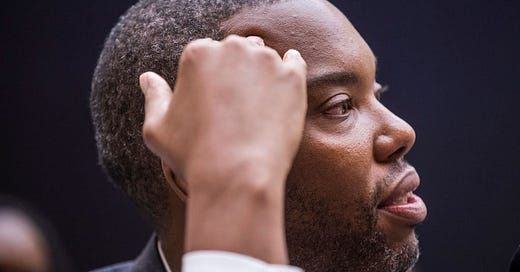







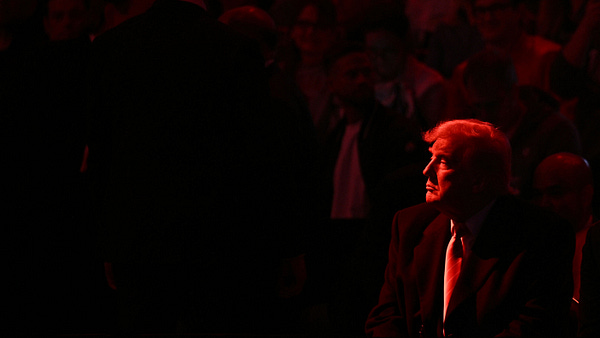


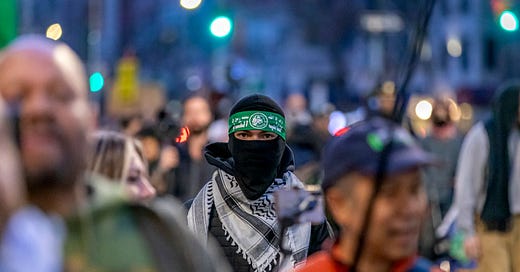
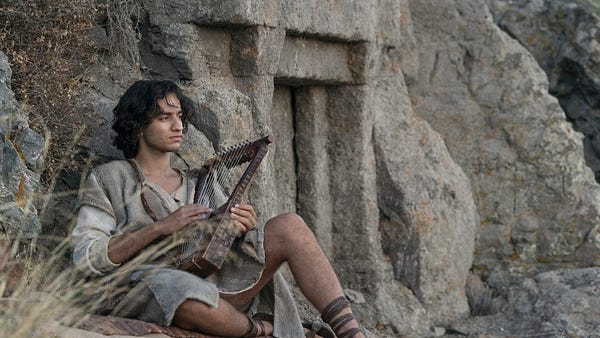



Whenever Coleman Hughes writes or speaks I can’t wait to read or listen. I know I will get well reasoned, well researched and intelligent analysis. Conclusions based on facts not ideology. Bravo and continue the good work. Thank you Free Press for publishing his work.
I called Trump a narcissistic con-man in the Washington Post comment pages, and the comment stayed posted. I read one of their most libtard columnist's praising of Coates' latest drivel, and I commented that Coates was a grifter who profits off of stoking racist flames, and suprise, it was deleted. I try to refer people to this piece in TFP whenever Coates latest comedy is mentioned.